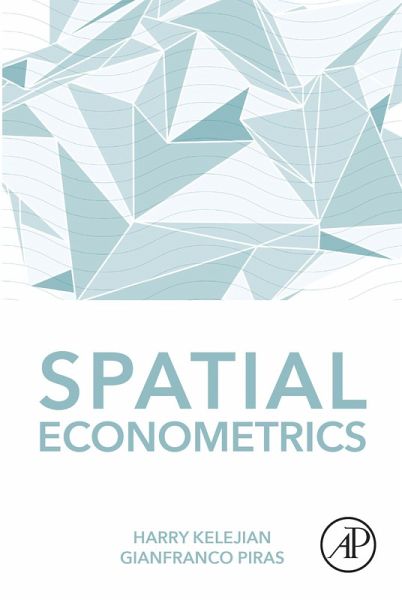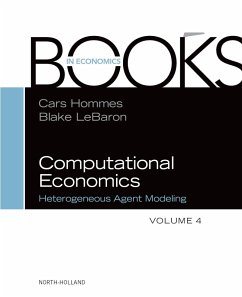
Spatial Econometrics (eBook, ePUB)
Versandkostenfrei!
Sofort per Download lieferbar
74,95 €
inkl. MwSt.
Weitere Ausgaben:

PAYBACK Punkte
37 °P sammeln!
Spatial Econometrics provides a modern, powerful and flexible skillset to early career researchers interested in entering this rapidly expanding discipline. It articulates the principles and current practice of modern spatial econometrics and spatial statistics, combining rigorous depth of presentation with unusual depth of coverage. Introducing and formalizing the principles of, and 'need' for, models which define spatial interactions, the book provides a comprehensive framework for almost every major facet of modern science. Subjects covered at length include spatial regression models, weigh...
Spatial Econometrics provides a modern, powerful and flexible skillset to early career researchers interested in entering this rapidly expanding discipline. It articulates the principles and current practice of modern spatial econometrics and spatial statistics, combining rigorous depth of presentation with unusual depth of coverage. Introducing and formalizing the principles of, and 'need' for, models which define spatial interactions, the book provides a comprehensive framework for almost every major facet of modern science. Subjects covered at length include spatial regression models, weighting matrices, estimation procedures and the complications associated with their use. The work particularly focuses on models of uncertainty and estimation under various complications relating to model specifications, data problems, tests of hypotheses, along with systems and panel data extensions which are covered in exhaustive detail. Extensions discussing pre-test procedures and Bayesian methodologies are provided at length. Throughout, direct applications of spatial models are described in detail, with copious illustrative empirical examples demonstrating how readers might implement spatial analysis in research projects. Designed as a textbook and reference companion, every chapter concludes with a set of questions for formal or self--study. Finally, the book includes extensive supplementing information in a large sample theory in the R programming language that supports early career econometricians interested in the implementation of statistical procedures covered. - Combines advanced theoretical foundations with cutting-edge computational developments in R - Builds from solid foundations, to more sophisticated extensions that are intended to jumpstart research careers in spatial econometrics - Written by two of the most accomplished and extensively published econometricians working in the discipline - Describes fundamental principles intuitively, but without sacrificing rigor - Provides empirical illustrations for many spatial methods across diverse field - Emphasizes a modern treatment of the field using the generalized method of moments (GMM) approach - Explores sophisticated modern research methodologies, including pre-test procedures and Bayesian data analysis
Dieser Download kann aus rechtlichen Gründen nur mit Rechnungsadresse in A, B, BG, CY, CZ, D, DK, EW, E, FIN, F, GR, HR, H, IRL, I, LT, L, LR, M, NL, PL, P, R, S, SLO, SK ausgeliefert werden.













